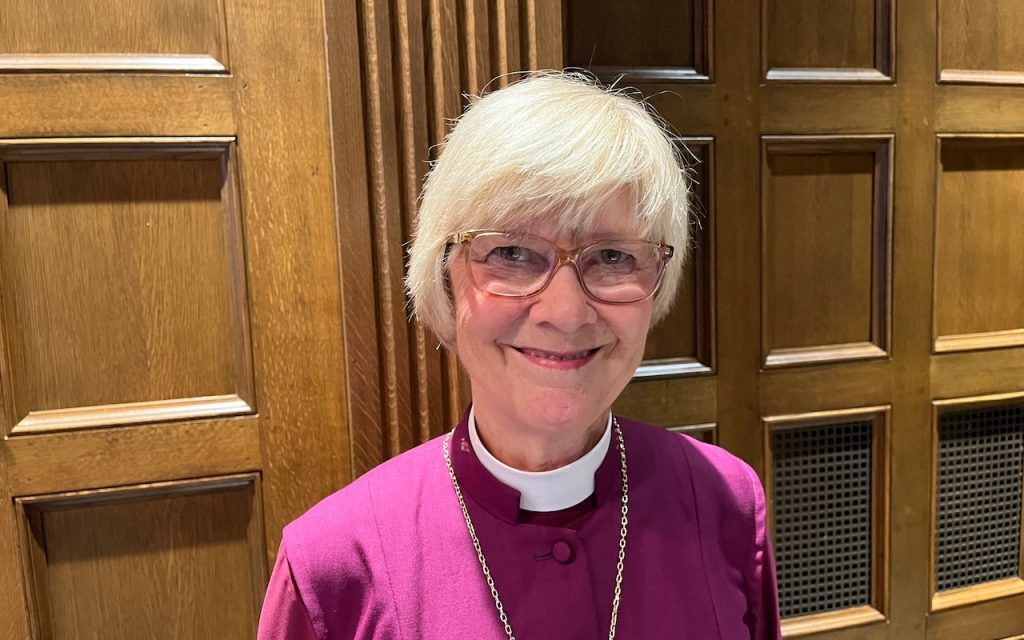Episcopalians in Alabama this year asked for a reduction in the amount of assessment they are required to pay to support their national denomination and its headquarters operation.
The Episcopal Church General Convention, which concluded June 28 in Louisville, considered a resolution proposed by the Diocese of Alabama and similar proposals by other regions of the church asking for a reduction in the assessment they pay to the national denomination.
The Diocese of Alabama, at its February convention in Montgomery, passed a resolution asking that the percentage, currently 15 percent, be reduced down to 10 percent by 2030. Also requesting a similar reduction in assessments were dioceses in Arkansas, Georgia, Oklahoma, Missouri and North Carolina.
The request was rejected by the General Convention.
“There’s a sense that more and more, the cost needs to be shared a different way,” said Bishop Glenda Curry, head of the Diocese of Alabama, in an interview this week after she returned from the General Convention in Louisville. “We’re carrying more and more of the burden over time.”
She said that the idea of reducing the assessments got started late, or it may have garnered enough support to pass.
“We felt like that’s a reasonable expectation, especially if you look at the amount of money that gets returned to us in grants,” Curry said.
The complicated grant structure often doesn’t return money to where it’s most needed in Alabama, she said.
“The people who supported the resolution were interested in having ministry be recognized as local,” Curry said. “Why should I send you five more percent, if none of it ever is returned, and we have to take it away from things we do?”
The election of Bishop Sean Rowe as the next presiding bishop of the Episcopal Church, effective Nov. 1, may help change that, she said.
“That’s another reason why I’m glad Sean was elected,” Curry said. “He sees that discrepancy and wants to rectify it.”
Taking funds from small rural parishes in Alabama and sending it to the New York headquarters doesn’t make sense for the state’s ministry priorities, Curry said.
“We’re walking alongside all our parishes trying to decide the ones that can handle it and the ones that can’t,” she said. “A network of churches, small and large, across the diocese is more important for sharing the gospel than just one or two giant churches in populated areas. Those small churches are doing amazing ministry in the community. When you go out and visit them, you realize how important the little church in Marion is to the people in Marion.”
The Episcopal Church General Convention adopted a $143 million churchwide budget for 2025-27. The budget maintains the 15 percent assessment on revenue that dioceses contribute to the churchwide budget.
The national budget funds 140 full-time denominational staff positions, along with grant programs, churchwide governance, operational functions and initiatives focused on some of the church’s ministry priorities, including racial healing, evangelism and creation care.
Other denominations have also struggled with the issue of reducing the burden on local churches to support the national denominational offices.
The United Methodist General Conference that ended May 3 approved a budget that asks for less money from local churches to support the national and international denominational structure.
The proposed $353 million budget for the United Methodists is a 42 percent reduction.
Facing increased financial strain and budget cutbacks, the denomination was considering a drop from asking 3.29 percent of every church’s budget, down to 2.9 percent.
Instead, the United Methodist General Conference voted to adopt a minority report that the denomination should only ask for 2.6 percent of local church budgets for the next two years. That’s expected to be roughly $40 million less.
The Episcopal Church and the United Methodist Church both this year approved resolutions that would work toward the two denominations achieving a relationship of “full communion.”










